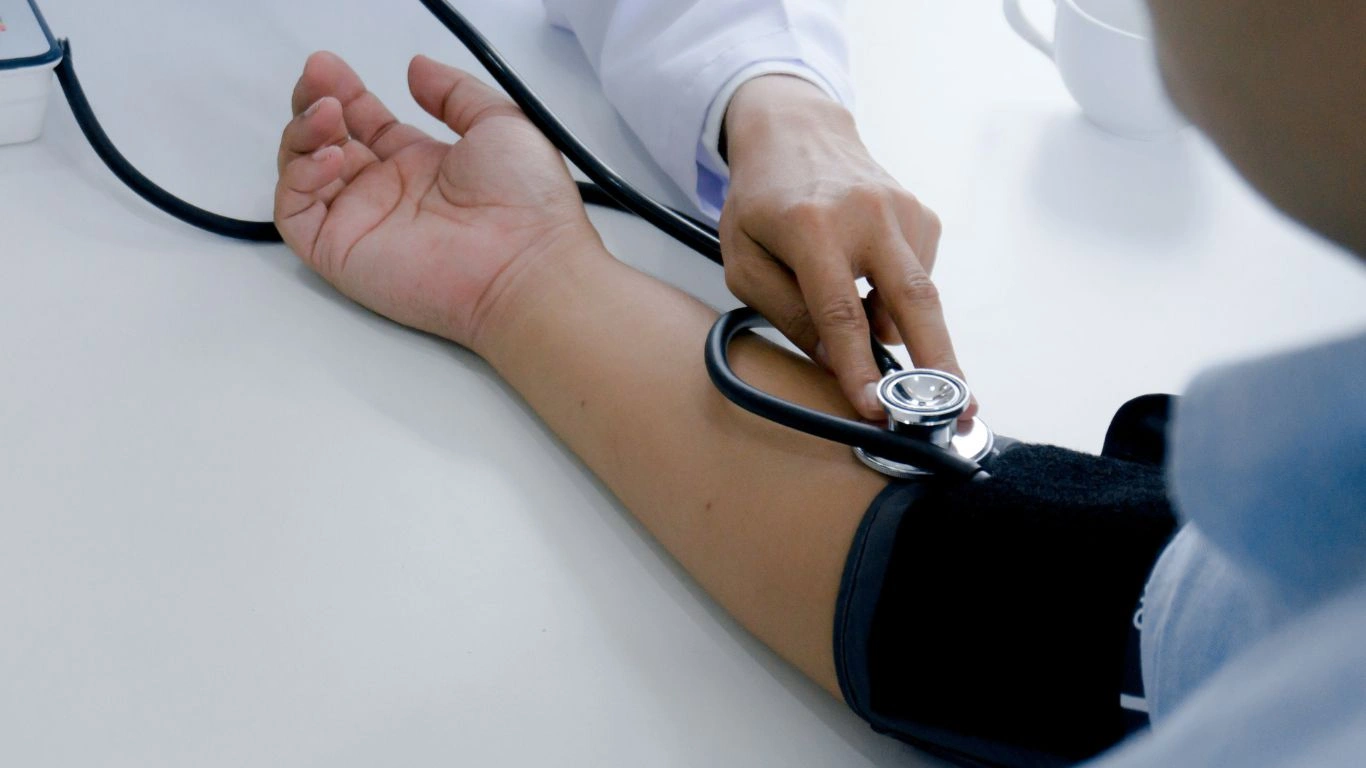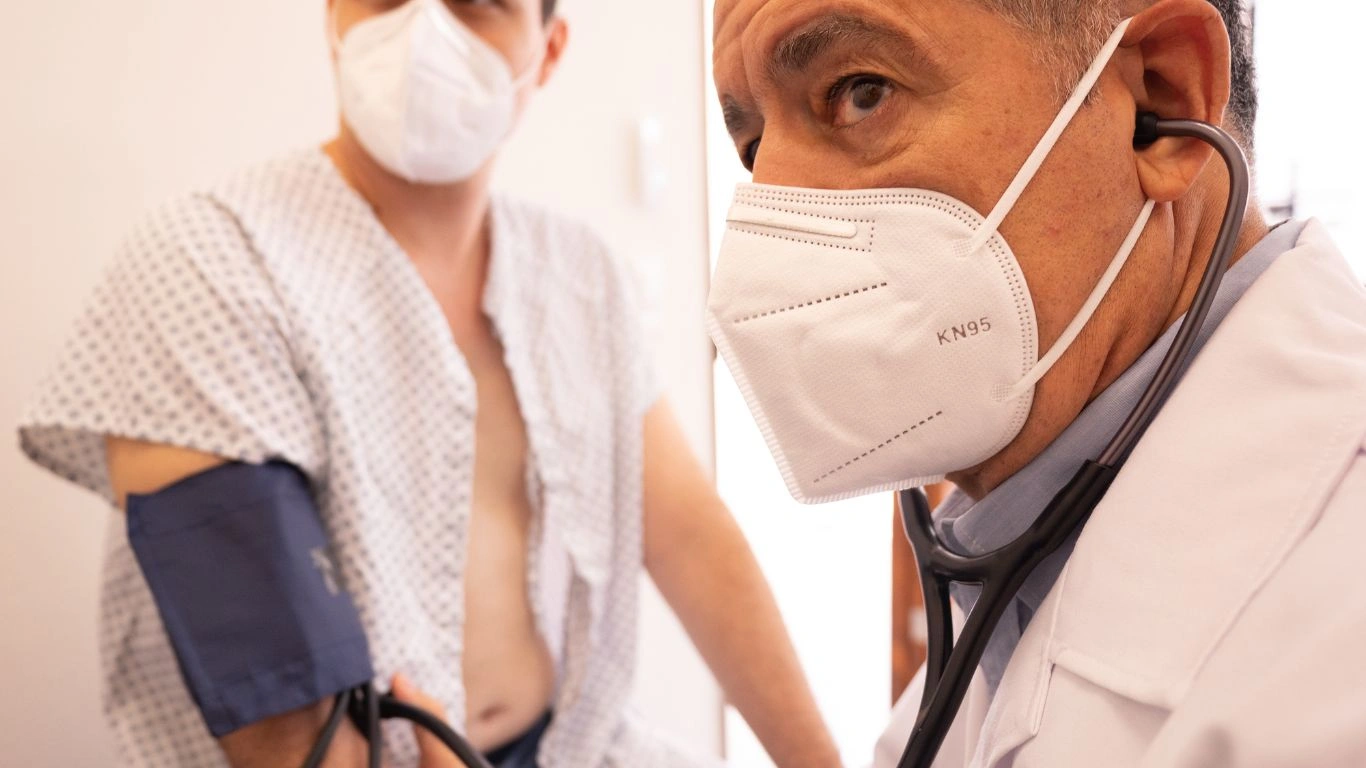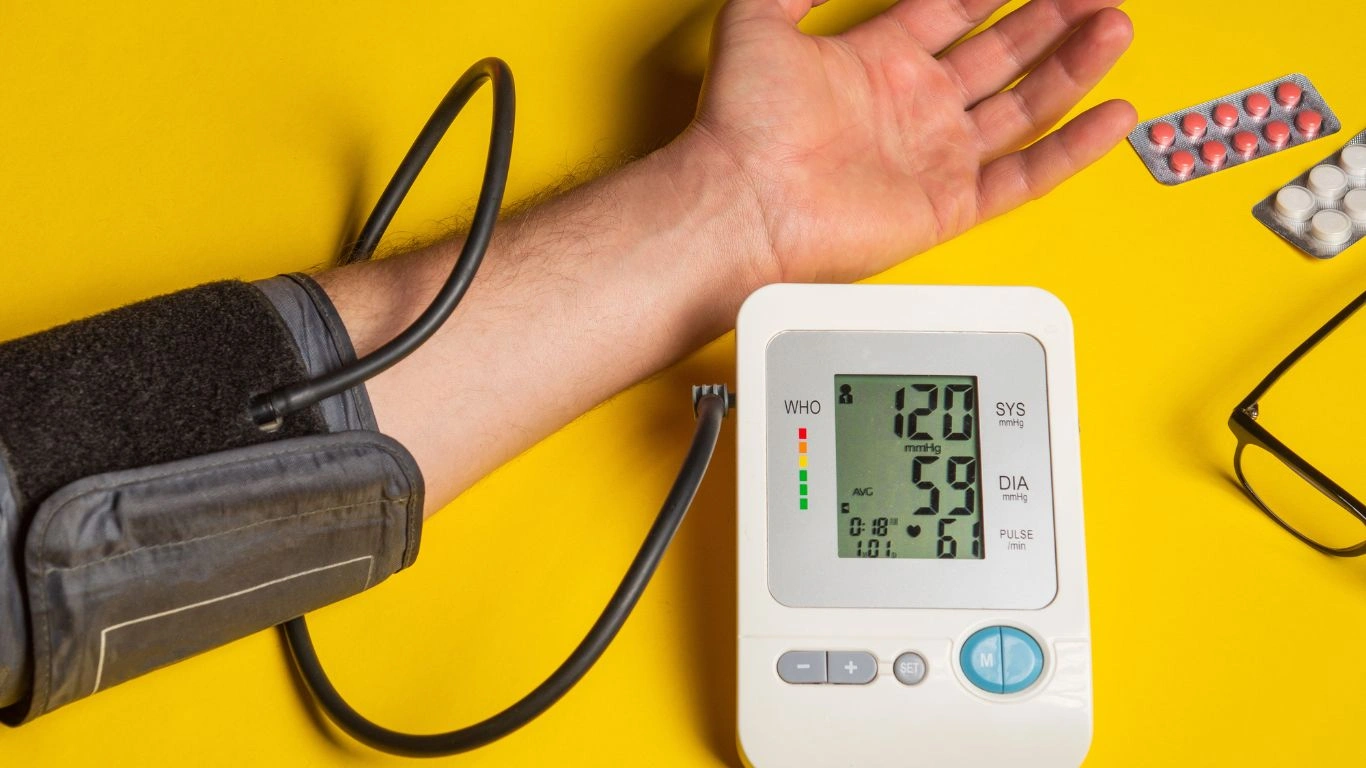Effective Ways to Manage Hypertension Naturally Over 50 for Better Heart Health
Hypertension, or high blood pressure, is often referred to as the “silent killer” because it can silently damage the body over time without presenting obvious symptoms. As someone with extensive experience in managing hypertension, especially in individuals over 50, I’ve witnessed firsthand how challenging it can be to navigate this condition as we age. But here’s the good news: you don’t always have to rely on medication to manage your hypertension. There are plenty of natural methods that can help keep your blood pressure in check, especially for those of us who are in the over-50 age group.
If you’re asking yourself, “How to manage hypertension naturally over 50?”, you’re in the right place! There are numerous lifestyle changes and holistic approaches that can be remarkably effective in lowering blood pressure and preventing long-term complications. In this guide, I’ll take you through the most effective and scientifically-backed strategies you can start incorporating into your routine today to naturally manage hypertension.
Understanding Hypertension and Its Impact on Health

Before we dive into natural management methods, it’s important to first understand what hypertension is and why it’s so critical to manage it, particularly over the age of 50. Hypertension is a condition where the force of your blood against the walls of your arteries is consistently too high. Over time, this increased pressure can cause serious health issues like heart disease, stroke, kidney damage, and more. In fact, people over the age of 50 are at a higher risk of developing high blood pressure due to a variety of factors like a slower metabolism, increased weight, and changes in the blood vessels as we age.
With that in mind, managing hypertension isn’t just about avoiding a diagnosis; it’s about taking proactive steps to protect your heart and overall health. The good news? Many of these steps don’t require heavy medications but can be achieved through simple, everyday changes in your diet, activity levels, and lifestyle. Let’s break it down!
Natural Ways to Manage Hypertension Over 50
1. Adjust Your Diet: The Power of Food

One of the easiest and most impactful ways to manage hypertension naturally is by making mindful changes to your diet. Now, don’t worry—I’m not suggesting you go on an extreme diet, but rather, focus on eating nutrient-rich, heart-healthy foods. Here’s what I typically recommend to my patients over 50:
- Increase Potassium Intake: Potassium helps balance the negative effects of sodium, which can elevate blood pressure. Foods like bananas, sweet potatoes, spinach, and avocados are rich in potassium.
- Reduce Sodium: High sodium intake is one of the primary contributors to hypertension. I often advise my patients to cut back on processed foods and choose fresh, whole ingredients instead. Be mindful of hidden salts in packaged foods too!
- Incorporate More Fiber: Fiber-rich foods like beans, oats, and whole grains are not only great for digestion but can also help regulate blood pressure.
- Limit Alcohol: I’ve seen it firsthand in my practice—drinking too much alcohol can spike blood pressure. While the occasional glass of wine is fine, moderation is key.
2. Regular Physical Activity: Your Heart’s Best Friend

As we age, staying active becomes more important than ever. Regular physical activity can help reduce blood pressure, strengthen your heart, and improve circulation. I’ve often recommended that my patients get at least 30 minutes of moderate exercise most days of the week. It doesn’t have to be anything intense—simple activities like walking, swimming, or even yoga can make a significant difference.
Exercise helps your heart become more efficient at pumping blood, which in turn can lower the pressure in your arteries. Plus, it’s a great way to manage weight, which also plays a crucial role in hypertension management. I always tell my patients that consistency is the key—whether it’s a brisk walk or a gentle bike ride, it all counts!
3. Stress Management: Keeping Calm
Stress is a huge factor when it comes to hypertension, and unfortunately, it’s something many of us struggle with as we get older. Life’s pressures can cause our blood pressure to rise, but there are natural ways to combat stress. Incorporating relaxation techniques like meditation, deep breathing exercises, or simply taking time for hobbies that bring you joy can be incredibly beneficial.
When you’re relaxed, your blood vessels have a chance to widen, reducing the strain on your heart. Personally, I’ve found that activities like spending time in nature, journaling, or practicing mindfulness have helped me—and many of my patients—reduce stress and feel more at peace. Don’t underestimate the power of simply slowing down.
4. Get Quality Sleep: Rest Is Essential
Did you know that poor sleep can contribute to elevated blood pressure? Chronic sleep deprivation is linked to an increased risk of hypertension, so getting enough quality rest is a must. I always remind my patients that sleep isn’t just a luxury; it’s a necessity for heart health.
To improve your sleep, try to maintain a regular sleep schedule and create a relaxing bedtime routine. Avoid caffeine and electronics before bed, as they can disrupt your sleep cycle. Creating a calm and dark sleep environment can work wonders. And remember, it’s not just about the number of hours you sleep; it’s about the quality of that sleep too.
Making These Changes Part of Your Life
Managing hypertension naturally is not a one-size-fits-all solution, and it requires consistency and commitment. As a physician, I’ve seen how small, gradual changes can lead to lasting results. Remember, you don’t have to make all these adjustments overnight. Start with one or two manageable changes and build from there.
In the next sections, we’ll dive deeper into other natural strategies for controlling hypertension, including the role of herbs and supplements, and how monitoring your blood pressure at home can empower you to stay on track. But for now, take it one step at a time—start with what feels doable, and you’ll soon be on your way to better heart health!
Herbs and Supplements: Natural Allies in Hypertension Management

As someone who has been working with patients for years, I can tell you that while lifestyle changes are the foundation of managing hypertension, natural supplements and herbs can be effective tools to complement these changes. In fact, I’ve seen positive results when patients incorporate certain herbs and supplements into their daily routine. Of course, always talk to your healthcare provider before adding anything new to your regimen, especially if you’re already on medication, but here are a few natural options I often recommend.
1. Garlic: Nature’s Heart Helper
Garlic is more than just a flavorful addition to your meals—it’s also a powerful ally for heart health. It contains compounds like allicin, which studies have shown can help lower blood pressure. In fact, several studies have demonstrated that taking garlic supplements regularly can lead to a noticeable reduction in both systolic and diastolic blood pressure.
If you’re like me and prefer natural remedies, I recommend adding fresh garlic to your diet whenever you can. If the taste is too strong, garlic supplements are widely available, and many of my patients have found them easy to incorporate into their routine. Garlic not only helps reduce blood pressure but also has the added benefit of improving circulation, which is crucial for heart health as we age.
2. Omega-3 Fatty Acids: Heart-Friendly Fats
Omega-3 fatty acids, found in fatty fish like salmon and sardines, as well as in supplements, have long been touted for their heart health benefits. These healthy fats can help reduce inflammation and lower blood pressure. As someone who works closely with patients over 50, I’ve seen the difference omega-3s can make, especially for those with hypertension.
If you don’t eat fish regularly, fish oil supplements are a great alternative. Studies have shown that omega-3s can reduce systolic blood pressure by a few points, and when taken consistently, they can have a long-term impact on heart health. Not only do omega-3s help lower blood pressure, but they also contribute to reducing triglycerides and improving overall heart function.
3. Coenzyme Q10 (CoQ10): A Boost for Your Heart
Coenzyme Q10, or CoQ10, is a naturally occurring antioxidant in the body that plays a key role in energy production. As we age, our natural levels of CoQ10 decline, which can contribute to cardiovascular issues, including high blood pressure. That’s why I often recommend CoQ10 supplements to my patients, especially those over 50, as they can help improve blood vessel function and lower blood pressure.
CoQ10 has been shown in studies to reduce blood pressure in both hypertensive and normotensive individuals. It’s one of those supplements that I’ve seen provide a noticeable benefit in patients who incorporate it regularly, especially when combined with other natural hypertension management strategies.
4. Magnesium: The Relaxation Mineral
Magnesium is an essential mineral that plays a critical role in over 300 biochemical reactions in the body, including regulating blood pressure. One of the ways magnesium helps is by promoting relaxation in your blood vessels. When your blood vessels are relaxed, it makes it easier for blood to flow, which naturally reduces blood pressure.
If you’re magnesium-deficient, you may notice symptoms like muscle cramps or fatigue—both of which can make hypertension harder to manage. Magnesium-rich foods like leafy greens, nuts, and seeds are great sources, but for those who need a little extra boost, supplements are an effective way to help keep blood pressure in check.
The Importance of Monitoring Your Blood Pressure at Home

One of the most empowering things you can do when managing hypertension naturally is to monitor your blood pressure regularly at home. I cannot stress enough how important this is, especially for people over 50. By tracking your blood pressure on your own, you get a clear picture of how well your lifestyle changes and natural remedies are working. Plus, it allows you to catch any spikes or drops early, so you can make adjustments before things get out of control.
There are many affordable and user-friendly blood pressure monitors available on the market, and I’ve encouraged many of my patients to keep one at home. You don’t have to track it every day, but checking it a few times a week can give you valuable insight into your heart health.
How to Take Accurate Readings
For those of you new to home monitoring, here are a few tips to ensure you’re getting accurate readings:
- Rest Before Measuring: Make sure you’re relaxed and sitting still for at least five minutes before taking your reading. Avoid caffeine or exercise right before you check your blood pressure.
- Use the Right Cuff Size: It’s important that the cuff fits your arm properly. Too small or too large a cuff can give inaccurate readings.
- Take Multiple Readings: If you’re unsure about the result, take two or three readings, about a minute apart, and average them.
Having this data can be invaluable, especially when working with a healthcare provider. It helps create a more complete picture of your health and can guide you in making necessary adjustments to your approach to managing hypertension.
Lifestyle Changes Beyond Diet and Supplements

While diet, supplements, and exercise play a huge role in hypertension management, lifestyle habits outside of those areas are equally important. As someone who’s been working with individuals over 50 for years, I’ve seen how stress management and sleep can be the missing pieces of the puzzle when it comes to controlling blood pressure. Let’s dive into those.
1. Reducing Stress: The Power of Relaxation
As we talked about earlier, stress can have a massive impact on blood pressure. Over time, chronic stress can cause long-term damage to your cardiovascular system. That’s why it’s crucial to incorporate stress-reducing activities into your daily life. Whether it’s meditation, yoga, or simply enjoying a hobby that brings you joy, these moments of calm are essential for overall health.
In my practice, I’ve found that patients who regularly engage in stress-relief activities tend to experience a reduction in blood pressure over time. It’s not just about relaxation; it’s about creating a mindset that promotes heart health.
2. Quality Sleep: More Than Just Rest
Sleep is another factor that’s often underestimated when it comes to hypertension. Chronic sleep deprivation has been linked to high blood pressure, and the deeper and more restorative your sleep, the better your body is able to regulate blood pressure. I encourage my patients to develop a bedtime routine that prioritizes relaxation and ensures they’re getting the rest their body needs to recover and thrive.
Now that we’ve covered some important strategies for managing hypertension, it’s clear that there’s no one-size-fits-all approach. But by incorporating these natural remedies into your life, you’re giving yourself the best chance for success in controlling your blood pressure as you age.
Regular Check-ups and Partnering with Your Doctor

One of the most important aspects of managing hypertension—whether naturally or with medication—is maintaining a strong partnership with your healthcare provider. As a physician, I always encourage my patients to schedule regular check-ups to monitor their blood pressure and overall health. It’s critical to stay proactive, especially as you age, to prevent complications down the road.
Even if you’re following a healthy lifestyle with diet changes, exercise, and natural supplements, regular check-ups give you the opportunity to track your progress and make adjustments as needed. It’s not just about treating hypertension—it’s about building a comprehensive plan for heart health that takes into account your personal circumstances, risk factors, and goals.
Your doctor can also provide you with additional insight into new research or treatment options that might be beneficial for you, and they can help guide you on the best approach for managing your blood pressure without solely relying on pharmaceuticals. Ultimately, it’s about finding a personalized, balanced approach that works for your lifestyle.
How to Talk to Your Doctor About Natural Hypertension Management
When discussing natural management methods with your doctor, it’s essential to be open and honest. Share your goals, the changes you’ve already made, and any supplements or herbs you’re considering. As a physician, I appreciate when my patients are proactive and informed. It helps me guide them more effectively.
It’s also a good idea to ask questions like:
- “Are there any supplements that could interact with my current medications?”
- “How often should I monitor my blood pressure at home?”
- “Are there any specific lifestyle changes I should prioritize based on my health profile?”
These conversations allow you to collaborate with your healthcare provider to create a tailored plan that considers both your natural approach and any necessary medical interventions.
Staying Consistent: The Key to Long-Term Hypertension Management

As we’ve discussed throughout this article, there’s no quick fix when it comes to managing hypertension. It’s a long-term commitment, and consistency is key. I know from my own experience working with patients that those who stay consistent with their lifestyle changes tend to have the best outcomes. It’s not always easy, and there will be days when it feels tough to stay on track, but the long-term benefits far outweigh the challenges.
Consistency doesn’t mean perfection—it means making small, sustainable changes that you can maintain over time. Whether it’s sticking to a regular exercise routine, eating more fruits and vegetables, reducing stress, or getting enough sleep, every positive step you take can make a real difference in lowering your blood pressure and improving your overall health.
Making Lifestyle Changes That Stick
One of the most common questions I get asked is, “How can I make these lifestyle changes stick?” The truth is, it’s all about setting realistic goals and focusing on progress rather than perfection. I often suggest breaking down large goals into smaller, more manageable ones. For example:
- Start with walking for 10 minutes a day. Over time, you can gradually increase the duration or intensity of your walks.
- Swap one processed food for a healthier alternative. If you enjoy chips, try switching to air-popped popcorn or raw veggies with hummus.
- Focus on one stress-relieving practice. Whether it’s a short meditation session or breathing exercises, making time for these practices daily can help you stay grounded.
Don’t forget to celebrate your wins along the way, no matter how small they may seem. Consistency builds over time, and those small habits add up to big changes.
Managing Hypertension: The Bigger Picture
Managing hypertension is not just about blood pressure—it’s about your overall well-being. By adopting a holistic approach that includes natural strategies like healthy eating, exercise, stress management, and proper sleep, you’re not just lowering your blood pressure, you’re improving your heart health, reducing your risk for other chronic conditions, and boosting your quality of life as you age.
As someone who’s seen countless patients over the years, I can tell you that those who approach hypertension management from a comprehensive, long-term perspective tend to have better outcomes. It’s about making a lifestyle that nurtures your body, mind, and heart. And that’s something worth investing in, no matter your age.
References
For more information on managing hypertension naturally, check out these trusted resources:
Disclaimer
The information provided in this article is for informational purposes only and is not intended to replace professional medical advice. Always consult with your healthcare provider before making any changes to your diet, exercise, or supplementation routine, especially if you have existing health conditions or are taking medication.

Dr. Gwenna Aazee is a board-certified Internal Medicine Physician with a special focus on hypertension management, chronic disease prevention, and patient education. With years of experience in both clinical practice and medical writing, she’s passionate about turning evidence-based medicine into accessible, actionable advice. Through her work at Healthusias.com, Dr. Aazee empowers readers to take charge of their health with confidence and clarity. Off the clock, she enjoys deep dives into nutrition research, long walks with her rescue pup, and simplifying medical jargon one article at a time.






